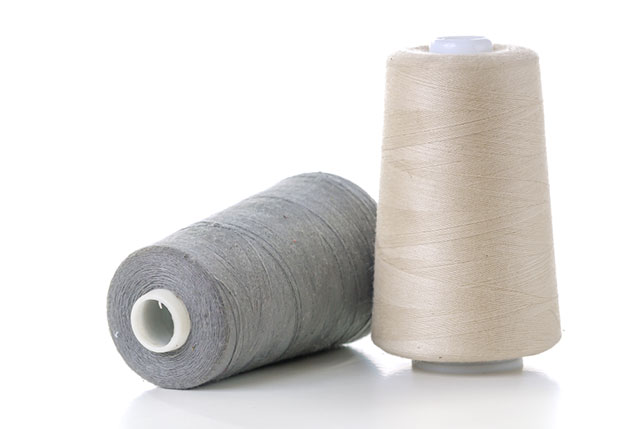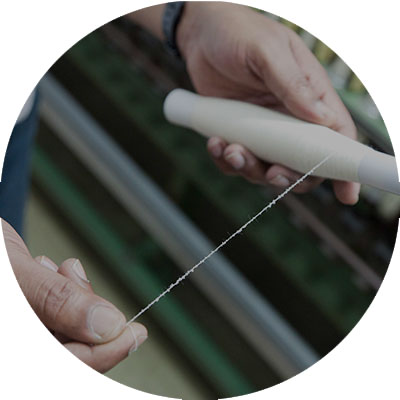Cotton Yarn
Cotton is a textile fiber that is very useful in provision of clothing for human. It grows on the cotton seed surface within a cotton boll, from a plant which height sometimes reaches to a meter. Each seed has an average 4000 fiber and may exceed to the maximum of 20,000. It has been grown in India for 5000 years ago, and a vast cotton harvest for spinning was first made in Egypt; the Spaniards began to produce cotton spinning in the eighth century, followed by China and Japan. Some researchers have attributed cotton to the American continent, Peru, where a bluish fabric was found about 4,500 years ago. In the 1800’s, the cloth was the most important production of the United States (due to the invention of a fiber-separation device from the boll). The cotton fabrics are the most desirable and high-quality fabrics of the world. It is more demanding everyday due to its use in human life. In all cases, such as clothing (from socks to hats and underwear), sanitary (towels, cotton balls to prevent sound to bandage and moisture absorbent sanitation), and industry (from shoe to fishing line and extreme emergency stop rope for heavy vehicles) it plays a valuable role. There are wide variety of species cotton due to natural factors such as soil, humidity, weather conditions, fertility, and etc.
Cotton quality is dependent of parameters such as color, elegance, length, durability and strength. Cotton is the only fiber that water increases its elasticity and make it easier to wash. As the humidity increases, its length and elegancy increase. In other words, reducing the moisture content of cotton fibers reduces its elasticity and makes it coarser and more fragile. Cotton fibers have layered structure and its length and diameter change between 2.3 to 63.5 mm and 15 to 20 microns respectively (length of cotton for spinning is between 22.22 to 31.8 mm). Such exceptional structure makes cotton lining resistant and different from the rest of the fibers. Cotton fibers are wavy in the length and has a bean-shaped in the cross-section. Also, the surface of the fiber is also rough and wavy. The set of these attributes makes it more prominent, favorable and substrate for spinning among the rest of the natural fibers. Cotton has a very elastic property, it easily wrinkles, and is compatible with the human body and gives the person a sense of good feeling. If a fat layer is taken on the fiber, it will be a great absorbent of moisture. It is not vulnerable to alkaline materials and becomes more shiny, transparent, and stronger under mercerization. Cotton fabrics become plucked or shortened after rinse. If cotton textile is exposed to the heat and direct sunlight for a long time, its color changes to yellow and the endurance will decrease. It also starts degrading under damp condition. The operation used to finish the cotton fabric (based on the required final product) is affected by other attributes of cotton fibers. Therefore, it is worth to mention some of these characteristics. As cotton fiber is not absolutely white, will be bleached. In order to get enough strength, gloss, and color absorption, the cotton fibers will be mercerized. In order to obtain the necessary gloss, and removing natural oils, cotton will put through the process of calendaring and degreasing respectively. In order to prevent wrinkling, anti-wrinkle finishing of the cotton will be performed.












